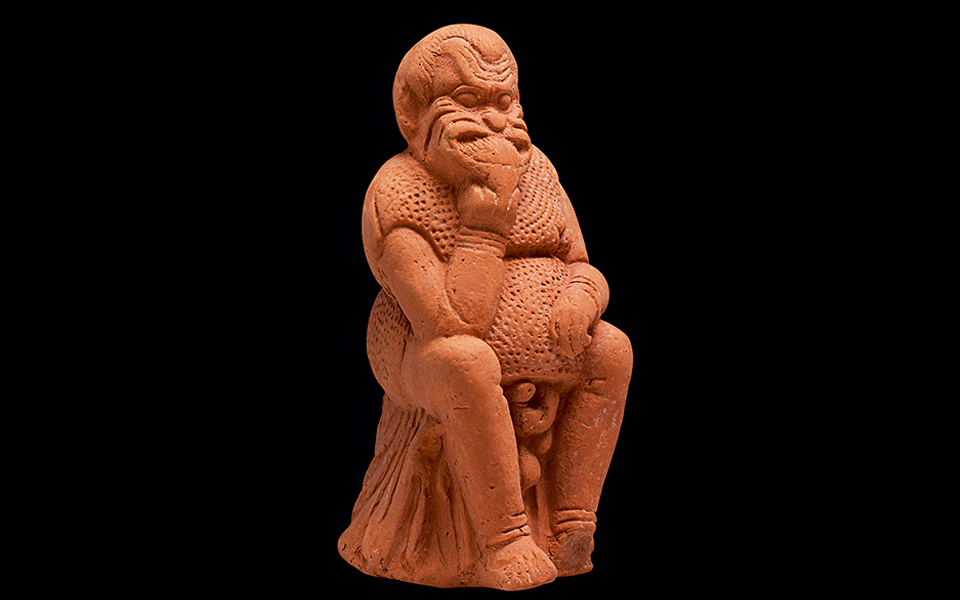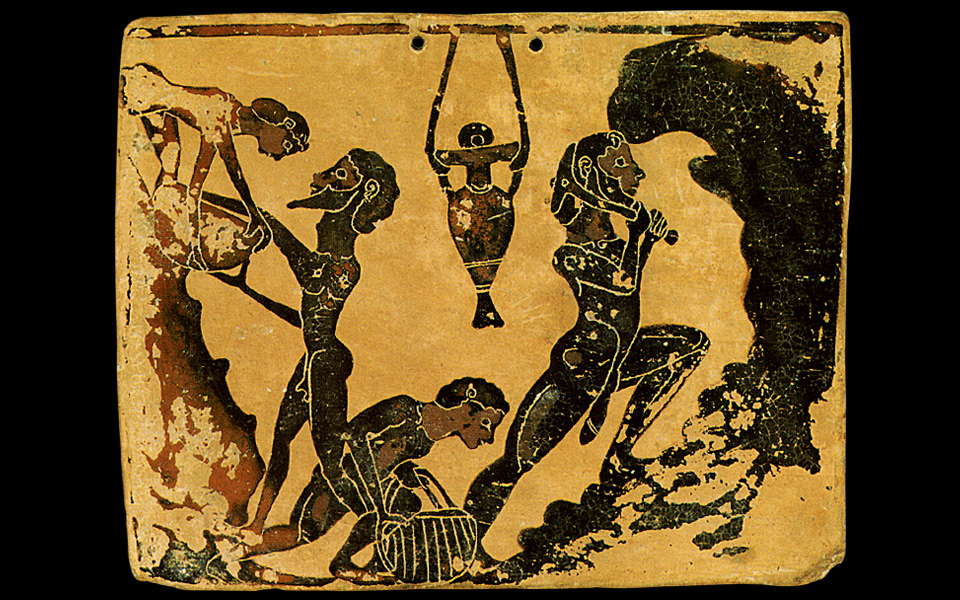One criticism raised against the Athenian democracy is that it was not all-encompassing because it excluded women, slaves and foreign residents (metics), being limited to Athenian male citizens above the age of 20. While this criticism may be justified, it can be somewhat misleading. By including all males, without any further requirement for citizen qualification (such as wealth or status) the Athenian democracy was a revolutionary phenomenon at a time when monarchies, tyrannies or aristocracies, i.e. decision-making limited to very few, were the norm.
Also, one should not forget that even modern democracies in most cases extended the franchise very gradually. Voting rights in England (Great Britain since 1707) were linked to wealth criteria that were progressively relaxed during the centuries following the Glorious Revolution of 1688 to include less wealthy citizens. Women in Great Britain were allowed to vote only after World War I, and in Switzerland, the longest established “modern” democracy (dating to the late 13th century, after the three original cantons — Schwyz, Uri and Unterwalden — rebelled against the Austrians), women were given the vote only after World War II.
As for foreigners, even in modern states, they do not have voting rights. In the European Union for instance, a Portuguese citizen who lives in Germany cannot vote in German national elections. “Isopoliteia,” the right of equal citizenship, has not yet been applied in the EU, as it had been in the ancient Greek confederations between the 4th and 2nd centuries BC, with first and foremost the Aetolian and Achaean leagues, which incidentally were a source of inspiration to the Founding Fathers when they were drafting the American Constitution after the revolution of 1776.
Lastly, slaves. Slavery was an accepted institution till the mid-19th century and even later in Asia and Africa. Slavery was abolished in the Confederate states only after the end of the American Civil War in 1865. Would one deny that the USA was a democracy before that date?
ECONOMIC INEQUALITY
The Athenian economy was market-based, highly monetized and specialized, with a significant contribution of the services sector to GDP and employment (Athenian banks even offered offshore services!). Hence, one could call it the first “modern” economy. The view that Athenians enjoyed a life of leisure has been refuted by analyzing the ancient sources. Xenophon in his “Memorabilia” mentions for example 180 professions of Athenian citizens and metics. De jure women in Athens did not have property rights (as they had in some Doric cities such as Sparta and Gortyna on Crete) but de facto they did and they worked, mostly at home but some even as entrepreneurs, such as two by the name of Artemis, both of Piraeus, the one managing a construction company and the other the best shop for women’s apparel (in today’s terminology, a boutique).
The average Athenian citizen had one or two slaves. Slave conditions were generally good, except for those working in the silver mines at Laurion. They could not be killed or harshly punished by their owners; they could own property and in some cases be freed or buy their freedom. We know of some famous examples of social mobility, notably of Pasion, who started as a banker’s trusted slave, married his widow at his death, was freed, then given full citizenship by the Athenians in gratitude for services rendered to the state, and died as the richest Athenian of the early 4th century BC.
During the construction of the Acropolis in the mid-5th century BC, free citizens and slaves received the same daily wage, one drachma. These was also a category of “slaves living apart” e.g. in their own homes, working as self-employed laborers and just paying a fixed amount to their masters. The fact that they could keep the remainder meant that one day they might even buy their freedom, a very strong economic incentive!
During the 4th century BC, an Athenian self-employed citizen received a daily income of 1.5 drachmas, so his yearly income may be estimated at about 450 drachmas. The 1,200 richest Athenians, those qualifying as members of a “symmoria” (a group assessed together for tax purposes), according to Demosthenes had property worth at least 15 talents, or 90,000 drachmas. We also know that normal interest on bank loans was 8 percent, while for other types of investment (such as shipping) it was higher. Thus, we estimate that a rich Athenian could have generated a yearly income of 8,000-9,000 drachmas from his wealth. This again gives us a measure of inequality: the 1,200 richest Athenians, about 3 percent of the total citizen population (estimated at 60,000 in 482 BC and 40,000 in the mid-4th century BC on account of losses during the Peloponnesian War), earned roughly 20 times more per year than an average self-employed Athenian.
Nowadays, assuming an average income of 40,000 euros for an employee in the West and remuneration (including bonuses, stock options, etc.) of 1 million euros (in some cases over 10 million euros) for top executives at major companies, one may conclude that on average the latter earn 25 times more than most employees. So these rough estimates show that the Athenian economy was more egalitarian than its modern-day western equivalent. And this egalitarianism was further underpinned by redistribution.
“ Women in Great Britain
were allowed to vote only
after World War I, and in Switzerland, the longest
established “modern” democracy women were
given the vote only after
World War II ”

REDISTRIBUTION
There is a general impression that redistribution, mainly though taxation, is a “modern” discovery of democratic 20th century states. In fact, Athenians practiced redistribution on a wide scale during the Classical period. In general, Athenians were adverse to the taxation of income and wealth, believing that free people should not be taxed. State revenues came from a variety of sources such as income from the silver mines, custom duties (at 2 percent, very important, since Piraeus was the biggest harbor and entrepôt in the Mediterranean), the leasing of state property, the “metoikion” (a moderate tax paid by foreigners – metics – working in Athens) and even the “pornikon telos” (a brothel tax).
Only in times of urgent financial need, such as wartime, did the Athenians introduce a direct property tax, the “eisphora.” But they did find other ways to indirectly tax wealthy Athenians, namely in the form of obligations known as “liturgies,” the most important and burdensome of which was the “trierarchy.” Under this obligation, a rich Athenian would be required to command and assume the expenses of a trireme for one year (which usually meant an operational period of eight months). Since the Trierarch would be commanding the ship in naval operations and in battle, he had a strong incentive to provide a strong vessel, as his life could well depend on its performance at sea. The average cost of a Trierarchy was 3,000-5,000 drachmas, which would be equivalent to a tax rate of 30-60 percent on the basis of the income estimates presented earlier. The cost of a Trierarchy was so great that the obligation could not be imposed in consecutive years, while a successful outcome of the “liturgy” would give the Trierarch political prestige and great pride.
Another characteristic example of redistribution relates to two famous “tamiai” or treasurers, as actually today’s equivalent of “finance ministers.” Eubulus and Lycurgus, who were elected by vote rather than by lot, restored Athenian finances after the ruinous Social War (357-355 BC) when Athens unsuccessfully tried to bring rebel city-states back into their alliance. The two treasurers managed to boost the city’s coffers from 120 to 400 talents in 355 BC (Eubulus) and to 1,200 talents in 322 BC (Lycurgus). To achieve this, they had proposed a reconciling of seemingly conflicting interests through the implementation of a “social contract” between the poor on the one hand, and middle-income and rich citizens on the other.
“ In general, Athenians were adverse to the taxation of income and wealth, believing that free people should not be taxed. ”
The poorer citizens, who found steady employment as rowers in the Athenian navy, were in favor of the continuation of the Athenian war strategy. In contrast, middle-income and wealthy Athenians wanted peace, since in times of war, landowners had to serve as heavy infantry “hoplites” and were thus absent from their land, while entrepreneurs suffered diminishing profits due to a decline in trade. Lycurgus and Eubulus proposed the following compromise to bring about “homonoia” (concord, or same-mindedness) among citizens: they financed a very extensive Keynesian-type program of public works, which provided ample employment opportunities to poor Athenians who might find themselves unemployed as rowers. The proposal was adopted in the Assembly, ushering in a period of 15 years’ peace (the longest during the Classical era), prosperity and many public works including the Theater of Dionysus on the southern slope of the Acropolis, new roads and a new sewage system for Piraeus which still stands.
Lycurgus’ program was the first ever to use taxation for redistribution in order to bring about a balance of interests among different social groups and implement through democratic procedures a social contract long before the writings of Enlightenment thinkers of the 18th century. Greek philosophers such as Antiphon had been writing about the theory of social contract from as early as the 5th century BC.











